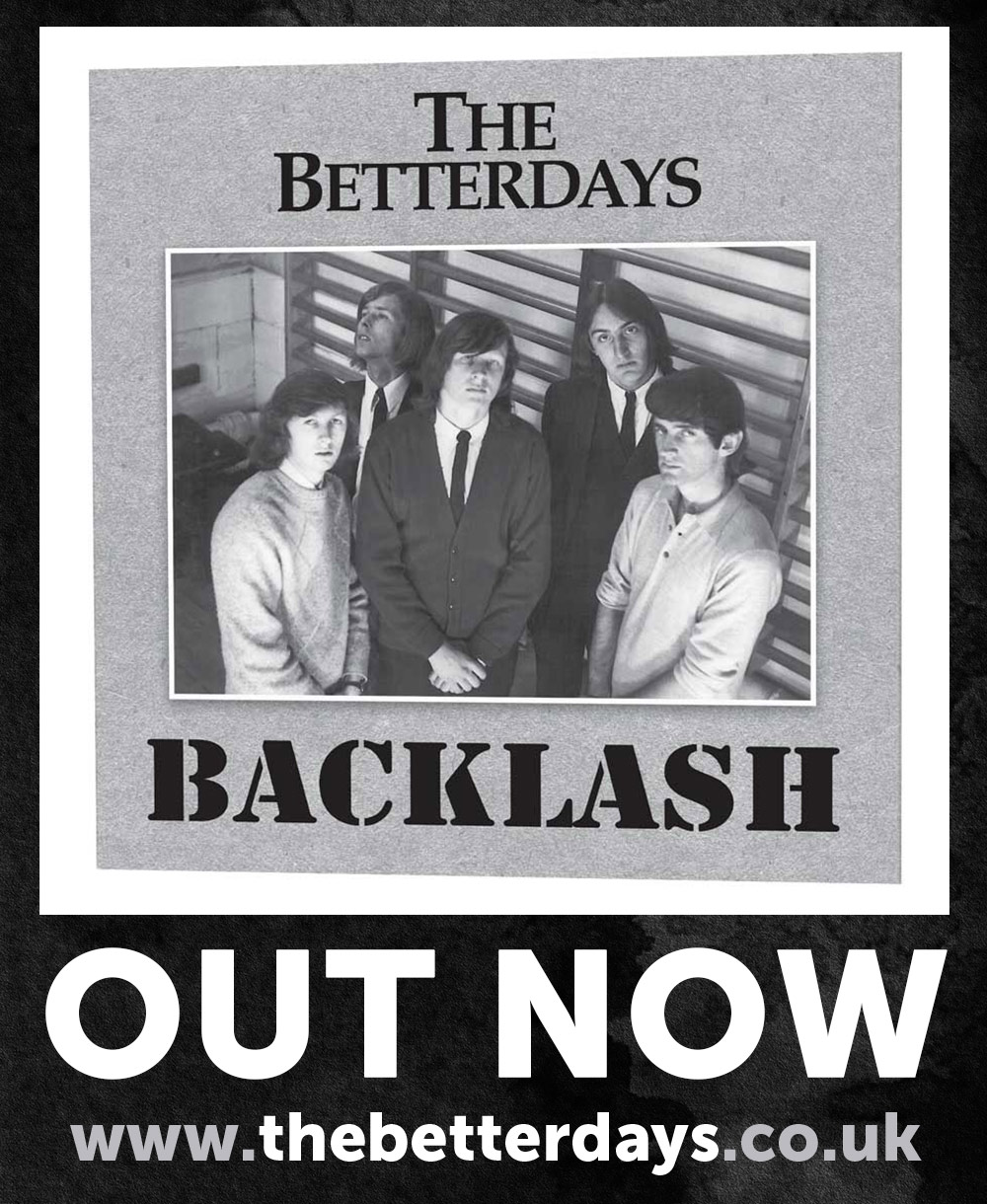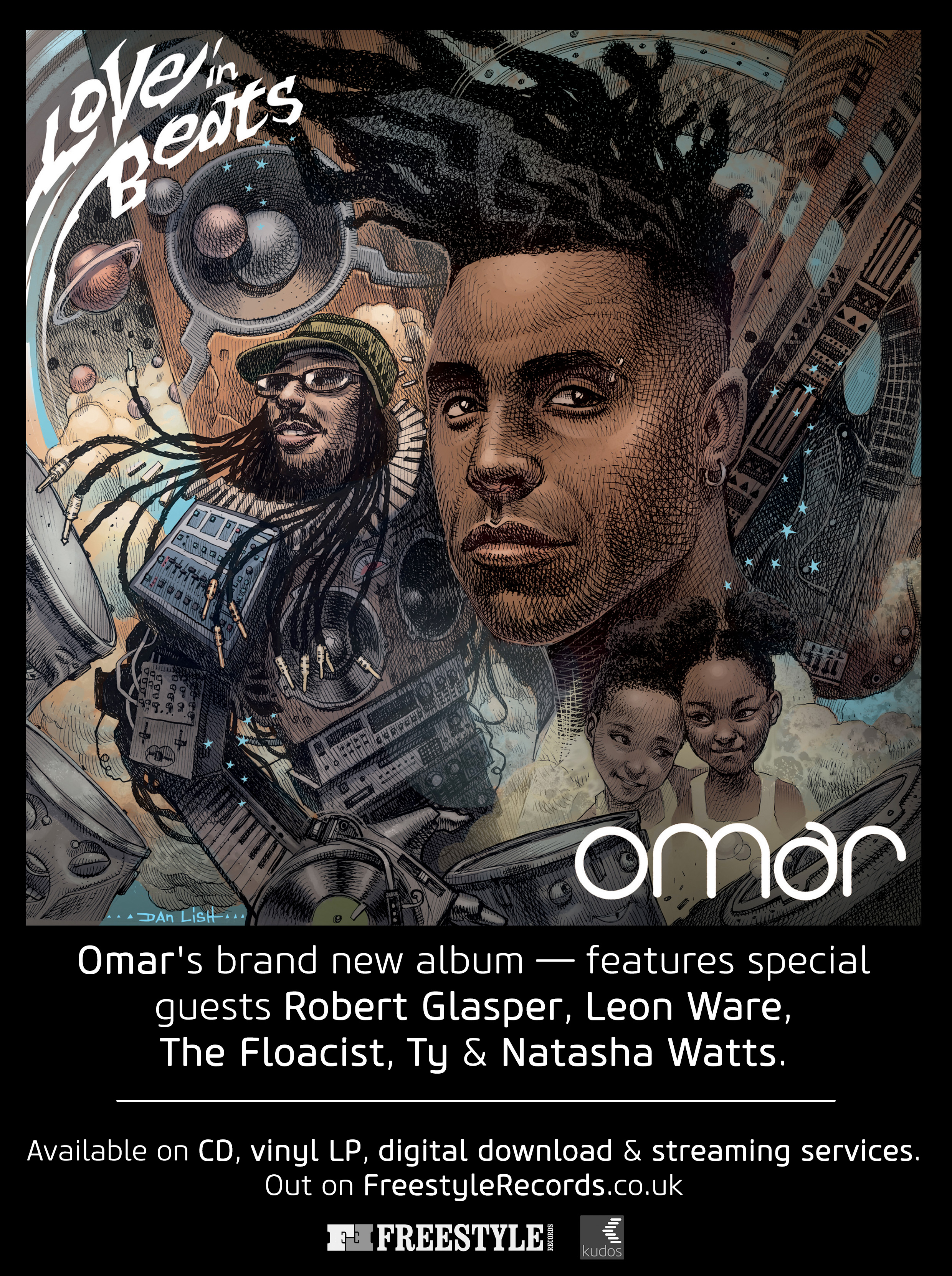Steve Logan is a formidable and respected Welsh singer and songwriter, whose music straddles the folk, rock and roots genres in style. He sings, plays electric and acoustic guitar, and harmonica.
After honing his skills performing in subways, (not the fast food chain!), indie and covers bands, and a well-established Free tribute, Steve’s now an in-demand solo artist.
He has released three solo albums of his own songs: “Signs and Wonders” in 2014, “Deliverance” in 2015 and “Wanted Alive” in 2016. All very well received by the media and his growing fanbase.
His fourth solo album “Backstreets Of Eden”, is due for release on Moondragon Records on 24th March 2018. A dozen original songs penned by Steve. He is joined on the record by his excellent regular band: Rhys Wilson (guitars), Andy Cross (bass) and Phil Bryant (drums).
Steve has played the rock and acoustic stages at the Cambridge Rock Festival for the last six years. His songs have featured on many radio stations across the UK and the USA, with positive feedback.
Music critics and broadcasters say: “A voice he can take anywhere…”. And….“He’s a songwriter whose relationship to Neil Young is arguably what Oasis was to The Beatles. Both parties came up with something all of their own, while leaving the listener in no doubt as to where their musical inspirations came from.”
Revelation…
Music Republic Magazine sat down with Steve to find out about the man and his music, to preview the release of “Backstreets Of Eden”, which included his revelation about almost quitting a music career until an epiphany moment – involving Bob Dylan…More on that later.
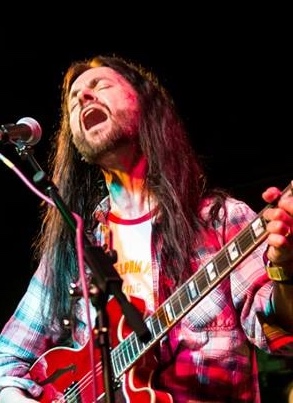
Steve’s earliest memories of performing in public. “According to my mother, I first performed in a café in Risca in the South Wales valleys, aged five. Singing alone to the Jukebox.
“The first performance I remember, was when I was 15, at the school dance, on a bigger stage than I would play for quite a few years afterwards. Then it was the subways…”
Subways? “I was just starting sixth-form at a North London comprehensive. Mostly I went out on my own. Sometimes, I got together with the drummer from my first band and previous school, Nigel Elliott. (He went on to play for Sheena Easton and Toyah Wilcox).
“He played a bongo, joined me on the choruses and worked as a ‘bottler’: a person who holds out a hat to passers-by. (You get much more money that way, than with an open guitar case). I played a handful of my own songs and a few covers.
“Most often I was in the Marble Arch/Edgware Road area. That was before you had to book pitches. It was first come first served, until someone bigger than you turned up.
“But the acoustics in subways are good, and since we had no mikes or amps, you could sing for longer without straining your voice. Around this time, I got talent-spotted, if that’s the word, at a party and had an audition in Baker Street for some TV show. Luckily, I failed it. I sang ‘Cowgirl in the Sand’ and they said my voice was too high”.
Influences? “The things that influence music are not all musical. And some are a long way back. My father was a singer and I heard a lot of music by people in his, and my mother’s generation, their parents’ generation, as well as my own. Any songwriter’s whole sense of how to shape a melody, how to manage the idioms in the lyrics, is the product of all the music they’ve ever really listened to.
“I’m always drifting around between Bob Dylan, Neil Young, Joni Mitchell, Leonard Cohen, Zeppelin, Nick Cave, Richard Hawley and Ryan Adams. Probably Dylan and Neil Young are the most consistently active among my musical influences”.
It filled me with longing for…
Steve recalls hearing a Beatles’ song at a dance and it stopped him in his tracks. “‘I Am The Walrus’….I wanted to stay listening to it, over and over. But the song that early on, affected me deeply and left me knowing that it definitely had, was ‘Ramble On’.
“It filled me with longing for Wales (when I heard it in England), for the hobo life, for beauty in an autumn setting, with passion for a soul-mate and with the desire to sing myself out in music. At the time I joined my first band and began busking in the subways round Marble Arch”.
So, do his Welsh roots seep into his music, in the writing? An emphatic YES to that one. “I can’t imagine being a musician in the sense I am, without being Welsh. Though of course, I’ve lived much of my adult life in England and think of myself as addressing anyone, regardless of nationality. The culture I grew up in was socially very warm.
“I’ve been permanently affected by that and regard it as a kind of ideal. After some years away, I went back to live in Cardiff as an adult, and felt very comfortable there (as I do in London).
“This is partly a matter of how music is in the culture, and in the way that people talk. I think I’d sing differently if as a child, I hadn’t been surrounded by people whose voices had this particular kind of tunefulness. Because some of the people who have meant most to me in my life were from Wales, I have written many songs that include them, sometimes explicitly.
“Like ‘Billy the Kid’ or ‘Falling Star’, or ‘Jukebox’. On the current album my father, whose family was originally from Cork, features in ‘Spotlight’. In Wales, the Arts do not belong to the middle classes. I feel I am trying to honour the people I come from”.
I quit…
As mentioned earlier, Steve almost packed it all in when he became disillusioned with the music business, and his personal disappointment in not progressing as far as he maybe hoped he could have by that stage in his life. But one pivotal moment changed his mind in a flash…Steve takes up the story: “There was a period in my life when I think I had begun to feel despondent about making any kind of success of it in music.
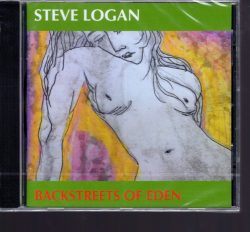
“I tried to interest myself in different kinds of thing, related to what I’d always done, but sometimes a long way from it. I taught myself the flute and listened to a lot of classical music. I read a lot of poets: Wordsworth, Keats, Yeats, Eliot, Dylan Thomas R. S. Thomas, Edward Thomas and many others.
“I was trying to find some kind of alternative to the rock and folk scenes, because they’d disappointed me. O rather; because I was disappointed with how I was doing in them.
“Then one night, I went round to a friend’s and he played me Dylan’s ‘Street Legal’. I can’t really describe the effect it had on me. It was like a hand laid on my shoulder in the dark, which turned me around. I remembered, like I was discovering it for the first time, what joy in this music really felt like. I knew freshly that wonderful, exhilarating and important work could be done in the rock and folk idioms that I knew best.
“And though no one else can be Dylan, his example was a beacon in my heart. The next day I went out and bought Dylan’s then-new album, ‘Slow Train Coming’. It was like my blood had been changed. I thought of that as a kind of providence, a gift from God. It re-set my old connections…”
Asked which is the most personal song on the new record, he’s straight in with: “They’re all personal. I don’t think people connect very deeply with songs which aren’t. But ‘Pontymister’ is about the unregarded (sic) place where I grew up, and which I feel deep love for. ‘Paperboy’ is about a person I love (so are ‘Spotlight’ and ‘Hyacinth Girl’). And the title track is about the survival of goodness, despite the suffering in the world.
“I wrote ‘Skylark’ and ‘Lead in My Pencil’ when I’d been listening to a lot of old blues, especially Robert Johnson. The phrase ‘Lead in My Pencil’ came from the great-uncle who is the subject of a song (‘Billy the Kid’) on my last album, ‘Wanted Alive”.
Grafter
Steve Logan is a grafter. He is on the road a heck of a lot, as a solo artist, with his band and with his Neil Young tribute. He used to front a successful Free and Bad Company tribute band too.
So, we end this chat, with the serious issue of more and more UK venues shutting their doors and live music promoters throwing in the towel. Making it harder for full time musicians to put bread on the table from music alone. But tribute bands often filling medium sized and large rooms and theatres, and getting lots of work in their book. Steve’s take on this issue:
“I’m clearly aware, as a gigging musician, that it’s hard to get people to come to gigs and that promoters often struggle to interest gig-goers in new music. The internet, which has been so hugely beneficial to musicians in many ways, has probably contributed to the problem. It’s too easy to think you can always watch someone play live on YouTube. The awareness of what live music feels like, seems to have declined.
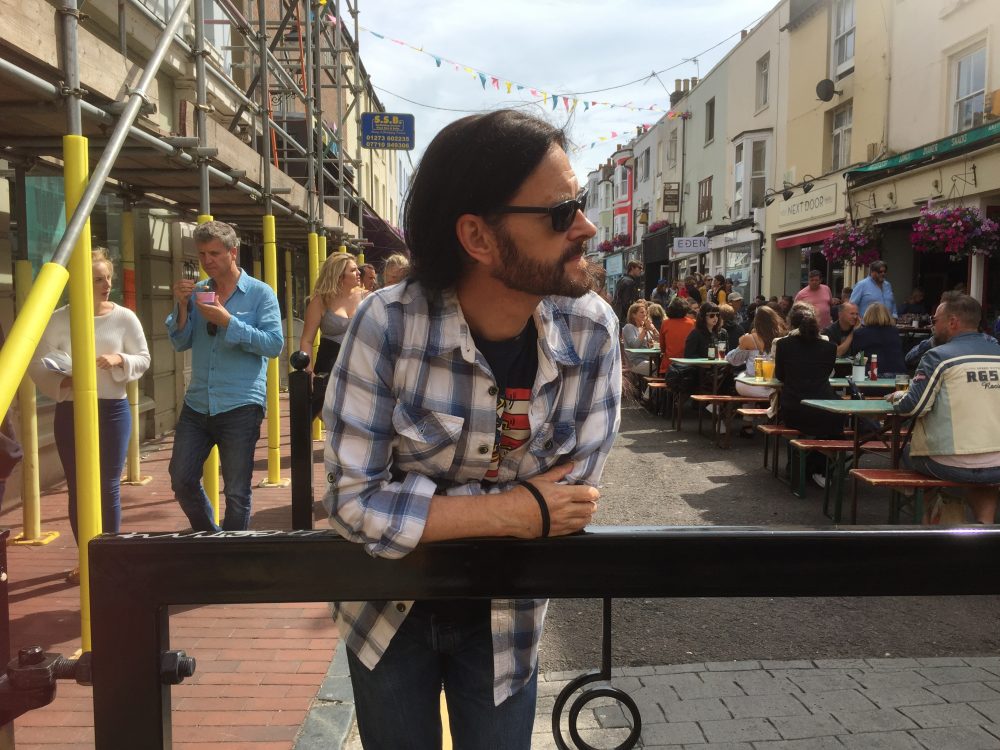
“I also put this down to the excessive prices charged by many touring bands. I’d like to see some of these stay in modest hotels, use the minimum number of tour buses and play smaller venues with tickets for under 25 quid. At the same time, the general public could do with having it explained over and over that ‘Superstardom’ in music is often (not always) constructed by advertising.
Tributes are good and necessary…
“The fact that you haven’t heard much about someone, doesn’t mean they’re bad. The fact that you’ve heard a lot, doesn’t always mean they’re good”. Yet tribute bands seem to constantly pull in decent numbers who pay a hefty ticket price. How does that sit with you, Steve?
“Well, I played in a tribute to Free and Bad Company for a long time, and I did this partly because I loved those bands and partly to get out of playing covers in pubs; and new music in venues where you had to pay to play. Many popular musical genres – rock, blues, folk, country, for example – now have a history and keeping the back-catalogue of music alive is important.
So, tributes are good and necessary. I often play Neil Young shows – slotting my own songs in – so that I can reach an audience which knows what he’s like and may like me. But I think it a pity when venues use tributes as an easy option, and don’t think of creative tactics for promoting new music alongside older stuff.
“If well known musicians choose their own supports, and don’t rely on the record label to do it for them, I admire them for that. It’s one of the most effective ways little known musicians can reach people who would enjoy their work. I’d be happy to play more support gigs…”.
With the wide spread radio spins and positive media coverage Steve’s new record, “Backstreets Of Eden” is getting early doors, pre-release, it may not be support slots he is being offered any more. He seems to be running on a full creative tank right now, and pretty sure there’s more to come from the man, too…
Steve Logan: Backstreets Of Eden is released by Moondragon Records on 24th March 2018.
By Alan Richard




